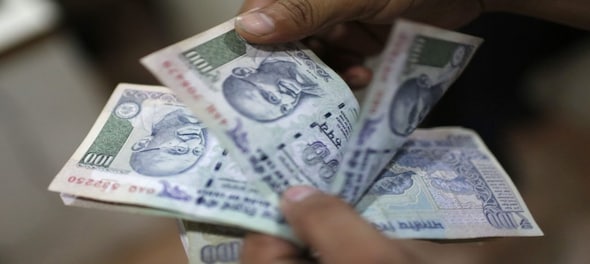
In a recent technical glitch, UCO Bank experienced issues where funds from transactions initiated by customers from other banks were credited to the lender's account holders without the bank actually receiving the money. This incident, involving 6-7 different banks, unfolded between November 10-13. Unfortunately, this isn't an isolated scenario.
Live TV
Loading...
In an earlier incident from October, a Chennai resident transferred ₹2,000 only to find ₹753 crore credited in his own account. Similarly, a cab driver from Chennai received a message notifying him of a staggering ₹9,000 crore credited by Tamil Nadu Mercantile Bank in September.
These incidents echo others from past months and years, such as erroneous credits reported by Google Pay users and HDFC account holders witnessing inflated balances, some even reaching ₹13 crore.
What exactly happened with UCO Bank
A person familiar with the matter told CNBC-TV18 that the UCO Bank transactions occurred when customers from other banks initiated transfers to UCO Bank customers, and UCO Bank’s system sent a “transaction failed” message to the remitter banks due to a technical glitch.
Consequently, while the intended recipients received their dues, an unintended side effect occurred — the sender banks also received credit, erroneously mirroring the transaction.
The lender responded by temporarily suspending its IMPS channel and recovering the amount. As of Thursday, November 16, the bank recovered over 80% of the money that was erroneously transferred into its customers’ accounts.
So, what should customers do if they find themselves on the receiving end of an erroneous windfall?
First and foremost, account holders should notify their bank immediately. Despite the unexpected appearance of funds, it's crucial not to utilise or withdraw this money, as it legally belongs elsewhere. Failure to comply might lead to legal repercussions, including the obligation to repay the misallocated sum along with any accrued interest.
Banks, following regulatory guidelines, possess the authority to reverse erroneous transactions without seeking explicit customer consent. They can rectify such errors through a process known as offsetting, effectively debiting an account to rectify an erroneous credit.
As per the Reserve Bank of India (RBI) rule, too, customers should report these instances to the payment service provider's customer care. Providing evidence, such as transaction screenshots, aids in resolving these misallocations.
At times users also mistakenly send money to the wrong person or encounter payments stuck when using Unified Payments Interface (UPI). This can happen due to various reasons, including typing errors in phone numbers or UPI IDs or simply choosing the wrong chat contact.
In these cases, customers should reach out to their bank directly and initiate a wrong credit chargeback, providing them with the Unique Transaction Reference (UTR) number associated with the payment. If the mistaken recipient holds an account with the same bank, the bank can act on their behalf and request a reversal. In cases where the recipient's account is with a different bank, the bank can assist by providing branch details. Account holders will need to visit the branch and liaise with the manager for further assistance.
It's important to note that the money can only be reversed with the recipient's consent. If they agree, the funds will be transferred back to the account within seven days. If the recipient does not respond to the request or the bank faces difficulties in retrieving the amount, the sender can escalate the matter by filing a complaint on the National Payments Corporation of India (NPCI) portal.
(Edited by : Amrita)
Check out our in-depth Market Coverage, Business News & get real-time Stock Market Updates on CNBC-TV18. Also, Watch our channels CNBC-TV18, CNBC Awaaz and CNBC Bajar Live on-the-go!


BJP is planning to ban RSS, says Shiv Sena (UBT) chief Uddhav Thackeray
May 18, 2024 8:01 PM
Punjab Lok Sabha elections: Complete list of Congress candidates
May 18, 2024 4:08 PM
Punjab Lok Sabha elections: Check full list of AAP candidates and constituencies
May 18, 2024 12:59 PM
PM Modi, Rahul Gandhi election rallies in Delhi today: Here are the routes to avoid
May 18, 2024 11:28 AM

